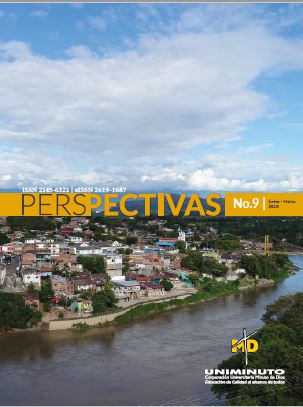La era de la economía naranja
Contenido principal del artículo
Resumen
La dinámica del actual sistema internacional está marcada o influenciada por el fenómeno de la globalización que exige cada día mercados más competitivos e innovadores. En este escenario los productos de la economía naranja adquieren importancia para los Estados, organizaciones internacionales, ONG y demás actores por su valor cultural y propiedad intelectual que expresan la riqueza de una nación determinada. Las expresiones de la economía naranja son representaciones sociales mediante el arte, los medios de comunicación, el diseño y el patrimonio cultural, entre otros. Un ejemplo de lo anterior fue la nominación de la película colombiana El abrazo de la serpiente. Un factor que afecta el desarrollo de la economía naranja es la piratería; ante este flagelo la Unesco en colaboración con los Estados y la comunidad internacional ha desarrollado de forma progresiva una normatividad tendiente a la protección intelectual de estos productos.
Detalles del artículo
Sección
Cómo citar
Referencias
Duque, I., & Buitrago, F. (2016). La economía naranja. Una oportunidad infinita. New York: Banco Interamericano de Desarrollo. Recuperado de https://publications.iadb.org/bitstream/handle/11319/3659/ La%20economia%20naranja%3A%20Una%20 oportunidad%20infinita.pdf
Gurry, F. (2017). Futuro de la propiedad intelectual, sus oportunidades y desafíos. OMPI Revista. Recuperado de http://www.wipo.int/wipo_magazine/es/2017/05/article_0001.html.
Luzardo, A., Jesús, D., & Pérez, M. (2017). Economía Naranja: Innovación que no sabías que eran de América Latina y el Caribe. Banco Interamericano de Desarrollo.
Migración Colombia. (Noviembre de 2017). MinCIT. Boletín Mensual de Turismo. Recuperado de http://www.mincit.gov.co/loader.php?lServici o=Documentos&lFuncion=verPdf&id=82875&n ame=OEE_OP_Turismo_Noviembre_22-12-2017. pdf&prefijo=file
Naciones Unidas. (2013). Informe sobre la economía creativa. Recuperado de https://books.google. com.co/books?id=jGWwBgAAQBAJ&printsec=f rontcover&hl=es&source=gbs_ge_summary_r &cad=0#v=onepage&q&f=false.
Palaino, A., Cabanyes, J., & Pozo, A. (2003). Fundamentos de la psicología de la personalidad. Navarra, España: Rialp S. A.
Organización de las Naciones Unidas para la Educación, la Ciencia y la Cultura (Unesco). (6 de septiembre de 1952). Cultura. Convención Universal sobre Derechos de Autor. Recuperado de http://www.unesco.org/new/es/culture/themes/creativity/creative-industries/copyright/ universal-copyright-convention/.
Organización de las Naciones Unidas para la Educación, la Ciencia y la Cultura (Unesco). (1999). Informe mundial sobre la cultura. España: Unesco.
Organización de las Naciones Unidas para la Educación, la Ciencia y la Cultura (Unesco). (2001). La propiedad intelectual como derecho humano. París: Unesco. Recuperado de http://unesdoc.unesco. org/images/0012/001255/125505s.pdf
Organización de las Naciones Unidas para la Educación, la Ciencia y la Cultura (Unesco). (2010). xiv Reunión del Comité Intergubernamental de Derechos de Autor. Sesión Piratería: Tendencias Actuales y Medidas no Legislativas. París. Recuperado de http://unesdoc.unesco.org/ images/0018/001879/187965S.pdf

